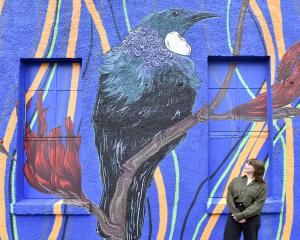Otago University research fellow Dr Andrew Clarkson (30), who is conducting the research, said it was a "huge honour" to have been awarded the Health Research Council's Sir Charles Hercus Fellowship.
Dr Clarkson was also "extremely excited" about the prospects for some novel drug therapies, which he was researching, to improve recovery after strokes.
A drug which already had US Food and Drug Administration (FDA) approval as a treatment for Alzheimer's disease had shown highly promising results in animal studies.
He hoped small-scale human clinical trials could start in New Zealand as early as next year.
"We saw this dramatic effect which we'd never seen [previously reported]," he said.
Memory and learning, as well as limb function and walking, were much improved.
Such approaches aimed to increase brain excitability levels and ultimately "bring back online" parts of the brain which had been damaged but not destroyed in a stroke, in order to promote recovery.
More testing was needed before the drug could be used as a new stroke treatment but animal studies were "really, really promising".
"It's a very new area of research."
Dr Clarkson, who has a doctorate in pharmacology from Otago University, said strokes were the leading cause of adult disability, and the third leading cause of death in New Zealand and other developed countries.
Injuries to the brain from a stroke could impair memory, thinking and learning as well as limb function, including walking, typically with limited recovery.
He will be carrying out his research in the Otago psychology department and the anatomy and structural biology department.
Dr Clarkson returned to Dunedin last week after undertaking postdoctoral research for two years at the David Geffen School of Medicine at the University of California in Los Angeles.
The HRC recently announced the three 2010 recipients of the fellowship were Dr Clarkson, as well as Auckland University researchers Dr Julie Lim and Dr Scott Graham.
The four-year fellowships are intended to support the development of emerging scientists and provide an annual salary of up to $100,000 a year, for four years, and a one-off grant of up to $100,000 for setup costs and equipment.













